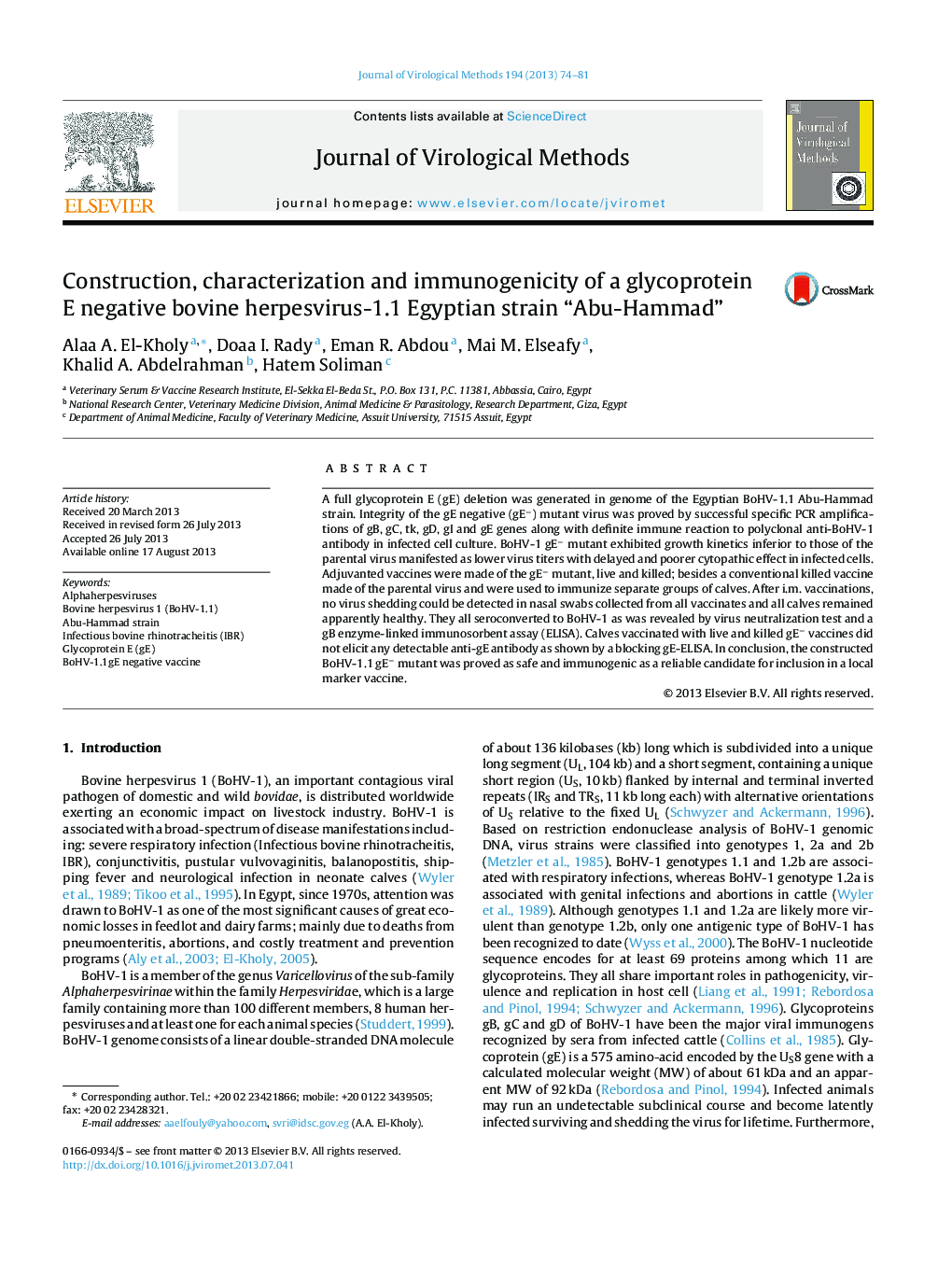| Article ID | Journal | Published Year | Pages | File Type |
|---|---|---|---|---|
| 6134196 | Journal of Virological Methods | 2013 | 8 Pages |
Abstract
A full glycoprotein E (gE) deletion was generated in genome of the Egyptian BoHV-1.1 Abu-Hammad strain. Integrity of the gE negative (gEâ) mutant virus was proved by successful specific PCR amplifications of gB, gC, tk, gD, gI and gE genes along with definite immune reaction to polyclonal anti-BoHV-1 antibody in infected cell culture. BoHV-1 gEâ mutant exhibited growth kinetics inferior to those of the parental virus manifested as lower virus titers with delayed and poorer cytopathic effect in infected cells. Adjuvanted vaccines were made of the gEâ mutant, live and killed; besides a conventional killed vaccine made of the parental virus and were used to immunize separate groups of calves. After i.m. vaccinations, no virus shedding could be detected in nasal swabs collected from all vaccinates and all calves remained apparently healthy. They all seroconverted to BoHV-1 as was revealed by virus neutralization test and a gB enzyme-linked immunosorbent assay (ELISA). Calves vaccinated with live and killed gEâ vaccines did not elicit any detectable anti-gE antibody as shown by a blocking gE-ELISA. In conclusion, the constructed BoHV-1.1 gEâ mutant was proved as safe and immunogenic as a reliable candidate for inclusion in a local marker vaccine.
Related Topics
Life Sciences
Immunology and Microbiology
Virology
Authors
Alaa A. El-Kholy, Doaa I. Rady, Eman R. Abdou, Mai M. Elseafy, Khalid A. Abdelrahman, Hatem Soliman,
